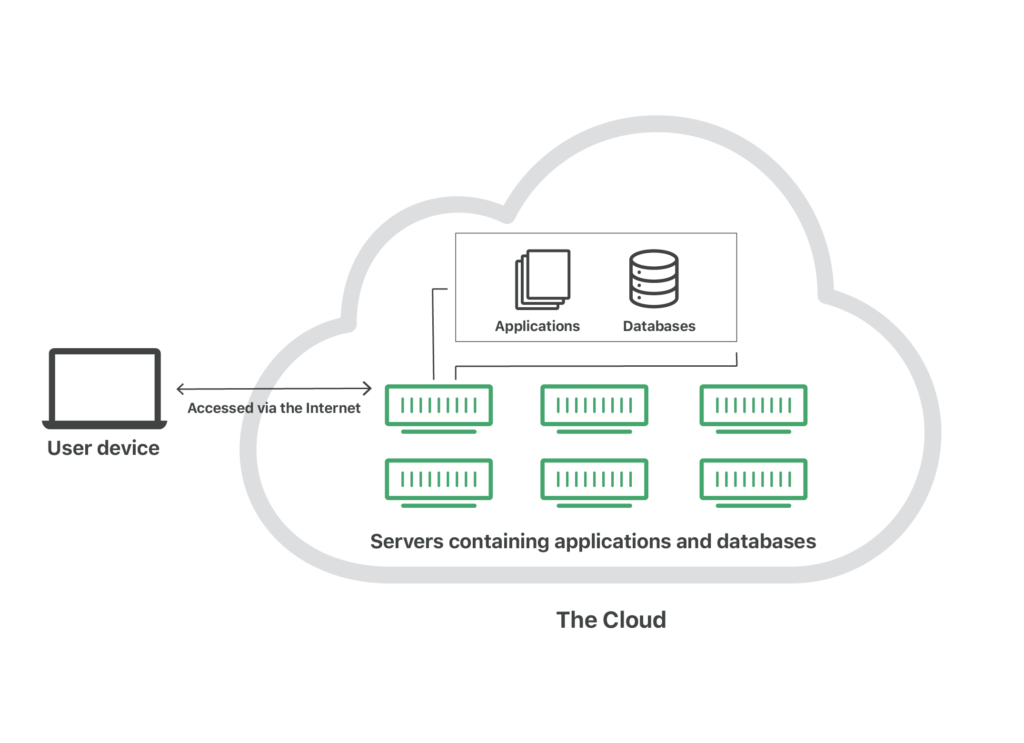Why should your organization move to cloud?

According to a study by the International Data Group, 69% of businesses are already using cloud technology in one capacity or another, and 18% say they plan to implement cloud-computing solutions at some point. At the same time, Dell reports that companies that invest in big data, cloud, mobility, and security enjoy up to 53% faster revenue growth than their competitors.
Listing few points that will be beneficial for the companies to move to cloud.
- Cost Savings – It allows the companies to reduce their infrastructure cost by eliminating the need to purchase and maintain expensive hardware and software. Instead, companies can use cloud services to access computing power, storage, and applications on a pay-per-use basis. Helps companies reduce their operational costs by automating many tasks and processes, such as software updates, security patches, and backups. This can free up IT staff to focus on more strategic tasks, rather than routine maintenance. Provides companies with the ability to quickly scale up or down their computing resources as needed, without having to invest in new hardware or software. This can help companies avoid over-provisioning and under-utilization of resources, leading to cost savings. improve their efficiency by allowing employees to access applications and data from anywhere, at any time, using any device. This can reduce the time and cost associated with travel and enable remote work, which can improve productivity and reduce overhead costs. Services typically operate on a pay-per-use or subscription model, providing companies with predictable costs that are easier to budget for than the unpredictable costs associated with on-premise infrastructure.
- Security – Cloud computing allows for centralized security management, which can help to ensure that all data and applications are protected by the same security policies and measures. This can help to reduce the risk of human error and improve consistency in security across the organization. Many cloud service providers offer built-in security features, such as firewalls, encryption, and intrusion detection and prevention systems. These features can help to protect against cyber threats and reduce the need for companies to invest in additional security measures. Cloud service providers typically update their security measures automatically and frequently, reducing the risk of security vulnerabilities and ensuring that the latest security measures are always in place. Many cloud service providers offer disaster recovery and business continuity services, which can help to ensure that companies can recover quickly in the event of a cyber attack, natural disaster, or other disruption. Cloud computing allows companies to implement granular access controls, which can help to ensure that only authorized individuals have access to sensitive data and applications.
- Flexibility – Cloud allows companies to scale their IT resources up or down based on changing business needs. Companies can quickly add or remove computing resources, such as storage, processing power, and bandwidth, to support changing business requirements. This can help to avoid over-provisioning and under-utilization of resources, leading to cost savings. Cloud computing allows companies to integrate their IT infrastructure with other cloud-based and on-premises systems. This can help to improve the flow of data and information across different systems, leading to improved efficiency and productivity.
- Mobility – Cloud computing allows employees to access data and applications from anywhere, at any time, using any device with an internet connection. This means that employees can work from home, on the go, or in the field, without being tied to a specific physical location. It allows companies to manage and secure mobile devices, such as smartphones and tablets, from a central location. This can help to ensure that devices are secure, up-to-date, and compliant with company policies. Employees can share files, communicate, and work together on projects using cloud-based tools and applications. Can rapidly deploy new applications and services, without the need to invest in new hardware or software. This can help to speed up time-to-market and enable companies to respond quickly to changing business requirements.
- Quality Control – Enables real-time data capture, storage, and analysis. This means that companies can monitor and analyze data in real-time, enabling them to detect and respond to quality issues quickly. Cloud-based quality management systems (QMS) provide a centralized platform for managing quality processes, such as corrective and preventive actions, audits, and compliance. This can help companies to standardize quality processes and improve compliance. Cloud computing enables traceability throughout the supply chain, from raw materials to finished products. This can help to improve transparency and accountability, leading to better quality control. Enables remote monitoring of manufacturing processes, supply chains, and products. This can help to identify and address quality issues before they become major problems.
- Loss prevention – Provides a secure platform for backing up and recovering data. This means that companies can quickly recover from a data loss event, such as a natural disaster or a cyber attack, without incurring significant downtime or data loss. Helps to implement disaster recovery strategies, such as replication of critical data and applications to a secondary site or cloud region. This means that companies can quickly recover from a disaster, with minimal impact on their operations. Companies can set up user access controls and permissions, ensuring that only authorized users can access sensitive data. By leveraging the cloud, companies can ensure the availability, integrity, and security of their data, reducing the risk of data loss.
- Automatic Software Update – Cloud based application automatically update themselves, instead of IT team doing the updates manually, this saves time and energy as well saves cost.
- Competitive Edge – Provides businesses with the ability to scale their IT infrastructure up or down as needed, without incurring the significant costs associated with on-premises infrastructure. This can enable businesses to rapidly respond to changes in demand, while reducing their costs and improving their flexibility. can provide significant cost savings for businesses by reducing the need for expensive on-premises hardware, software, and maintenance. By leveraging cloud services, businesses can pay only for what they use, reducing their capital and operational expenditures. Companies gain a competitive edge, including scalability, cost savings, speed of deployment, collaboration and mobility, and advanced analytics. By leveraging cloud services, businesses can rapidly respond to changes in the market, improve their operations, and gain a competitive advantage over their competitors.
- Sustainability – Given the current state of the environment, it’s no longer enough for organisations to place a recycling bin in the breakroom and claim that they’re doing their part to help the planet. Real sustainability requires solutions that address wastefulness at every level of a business. Hosting on the cloud is more environmentally friendly and results in less of a carbon footprint.
Therefore, its only wise for companies to move to cloud for better benefits, saving costs and time as well keeping up with the market which will not only ensure growth in terms of profit but also in terms in efficiency.

